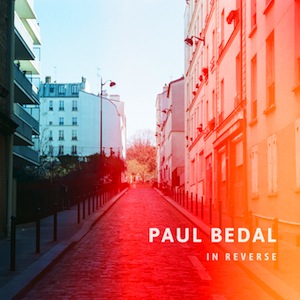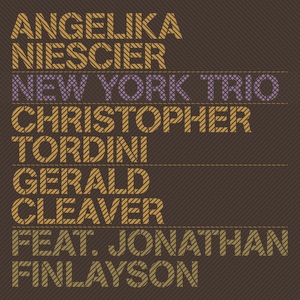Label: Analog Tone Factory, 2025
Personnel - Jerome Sabbagh: tenor saxophone; Ben Monder: guitar; Joe Martin: bass; Nasheet Waits: drums.
French-born, New York-based saxophonist Jerome Sabbagh reconvenes his long-standing, empathetic quartet for the first time in more than a decade. Joined by guitarist Ben Monder, bassist Joe Martin, and drummer Nasheet Waits—stepping in for Ted Poor—Sabbagh delivers a versatile post-bop album dedicated to his early teachers. Yet, each of the eight original compositions is a personal homage to someone who shaped his musical path. The title Stand Up!—borrowed from a tune on one of his earlier quartet albums—feels especially fitting in a time of political turbulence.
The shimmering echoey of “Lone Jack”, dedicated to Ray Charles and producer Pete Rende, channels American roots music with a bluesy-country lilt that feels both grounded and forward-looking. Monder’s sinuous guitar solo, Sabbagh’s melodically radiant saxophone lines, and a propulsive, open hi-hat backbeat drive the piece with grace and purpose. “Lunar Cycle”, inspired by Sam Rivers’ “Cyclic Episode” from Fuchsia Swing Song (1965), burns with post-bop vitality. Its colorful theme, stated in unison with Monder, sets up burnished solos and gives Waits room for striking rhythmic commentary.
Different in temperament, “The Break Song” and “Mosh Pit” pay tribute to Stevie Wonder and Trent Reznor, respectively. The former leans on a relaxed pop-rock pulse with subtle R&B inflections, while the latter erupts in muscular ferocity—dark saxophone lines, snarling guitar distortion, probing yet grounded bass conduction, and raw, explosive drumming as Waits knocks off the shine of his cymbals.
Gorgeously introspective, “Vanguard” honors the late Paul Motian, whose spirit informs its spacious phrasing and harmonic nuance. “Unbowed”, a modal post-bop finale for Kenny Barron, glows with Waits’ crisp snare rolls and cymbal shimmer, pushing Monder into electrifying territory. Between them lie two very personal dedications: the mid-tempo waltz “Michelle’s Song”, for Michelle Egan, and the sultry bossa “High Falls”, for Meaghan Glennan, evoking the warmth of Getz/Gilberto.
With Stand Up!, Sabbagh demonstrates he’s an open-minded, genre-defying saxophonist. Celebrating more than 20 years with this band, they spin with the same contagious enthusiasm as before.
Favorite Tracks:
01 - Lone Jack ► 03 - Lunar Cycle ► 06 - Mosh Pit ► 08 - Unbowed








































